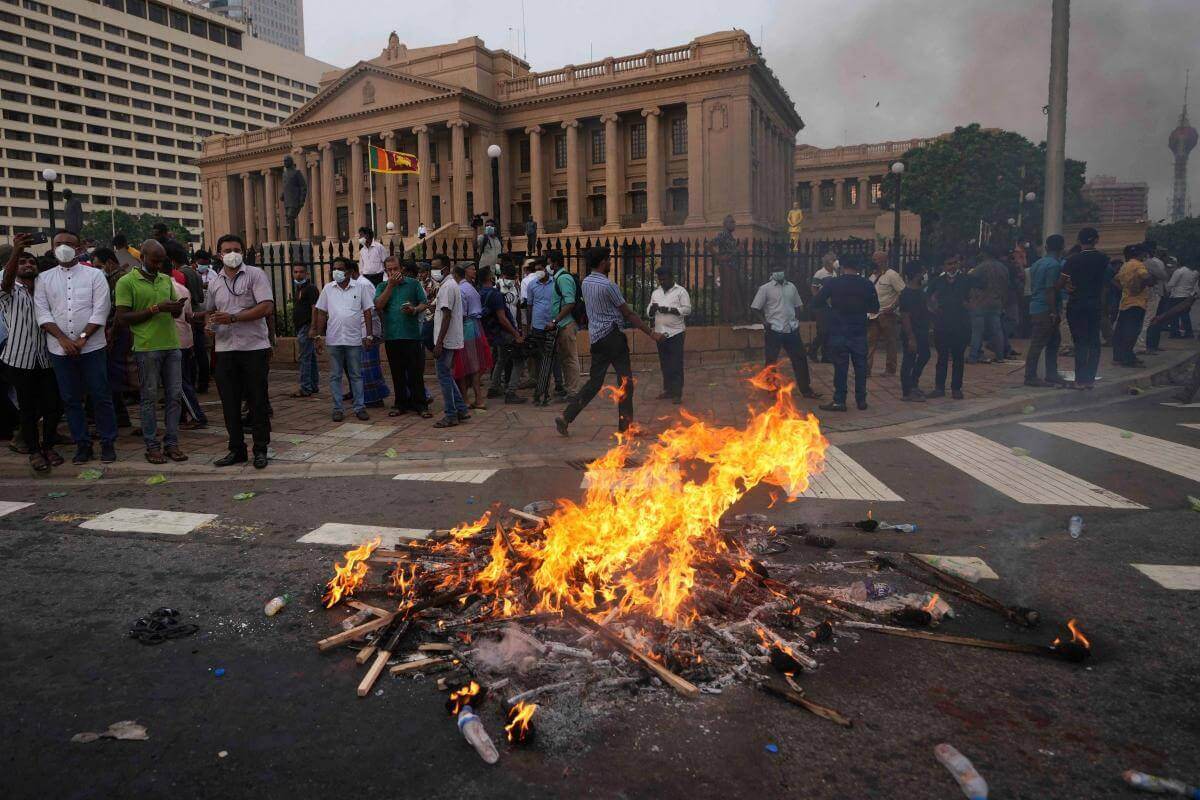On Tuesday, protests broke out in Colombo, with thousands of demonstrators gathering outside Sri Lankan President Gotabaya Rajapaksa’s residence to call for his resignation amid an unprecedented economic crisis that has led to record-high inflation rates and severe shortages of essential commodities like food, oil, and petroleum.
The protests have been led by the Opposition party, the United People’s Force, whose leader, Sajith Premadasa, addressed the protestors, saying, “You have been suffering now for two years. Can you suffer further?” He declared that the demonstrations marked the beginning of the opposition’s campaign to call for fresh presidential elections and bring down the “evil” Rajapaksa government, which he said has“ruined” the country. “Enough tolerating,” he told the demonstrators.
SJB protest kicks off in Colombo. @sjbsrilanka #SriLanka pic.twitter.com/tXa5jK6ZAl
— Jamila Husain (@Jamz5251) March 15, 2022
The protestors have accused the government of gross mismanagement and highlighted how the financial crisis has restricted them from purchasing basic necessities such as food and gas. In fact, the Opposition has argued that the government’s decision to ban the import of fertilisers directly played a hand in food shortages. Protesters were thus seen wearing headbands and carrying placards that read “Gota Go Home” and “Country is Destroyed,” demanding a change in leadership.
Meanwhile, President Rajapaksa is scheduled to address the nation later today to provide clarity on the government’s strategy. The government will also begin discussions with the International Monetary Fund (IMF) next month, reversing its months-long resistance to seek help from the international organisation.
Sri Lanka's main opposition SJB's protest currently underway in front of President's office in Colombo pic.twitter.com/zX72afcA6n
— Azzam Ameen (@AzzamAmeen) March 15, 2022
Sri Lanka’s foreign reserves have dropped by around 70% over the past two years, leading it to implement import quotas that have caused shortages of essential commodities such as oil and petroleum, cooking gas, milk powder, and medicines. This has caused a severe devaluation of its currency, which has reportedly dropped by as much as 36%.
The crisis has been partly instigated by the COVID-19 pandemic, which has dealt a major blow to the heavily tourism-reliant island nation. The government has also been accused of introducing poorly-timed tax cuts and of mismanaging finances and foreign remittances.
The country’s economic crisis has been further exacerbated by its outstanding foreign debt, of which $7 billion needs to be repaid in 2022. Reports suggest that Sri Lanka had $500 million worth of dollar bonds that matured on January 18 and an additional $1 billion bonds are slated to mature in July.

